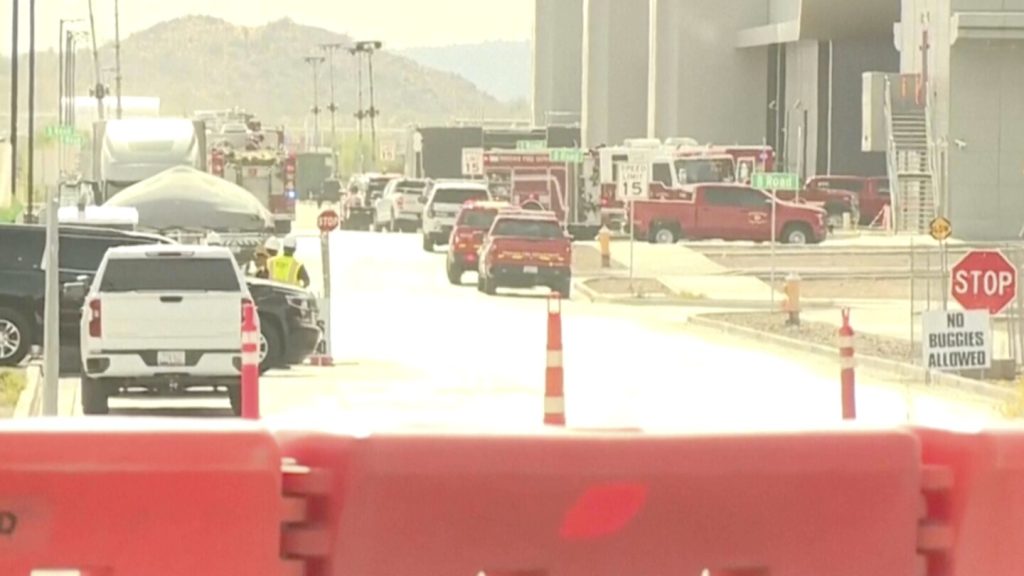The incident at the construction site of the Taiwan Semiconductor Manufacturing Company plant in Phoenix resulted in the tragic death of truck driver Cesar Anguiano-Guitron. While transporting waste material, Anguiano-Guitron was inspecting a tank when an uncontrolled pressure release occurred, striking him and throwing him over 20 feet. Despite being taken to the hospital, he succumbed to his injuries. The police are currently investigating the incident, and officials from TSMC Arizona confirmed that no employees or construction workers on-site were harmed, and there was no damage to the plant’s facilities.
TSMC is a leading producer of microchips globally and is working towards expanding its operations in the United States. President Joe Biden’s administration recently pledged up to $6.6 billion to support TSMC’s expansion of its Arizona facilities to ensure that the most advanced microchips are produced domestically for the first time. This funding is part of a broader effort to revive U.S. semiconductor manufacturing, as outlined in a 2022 law that Biden has championed. With the growing demand for microchips in various industries, especially in powering smartphones, vehicles, and data center servers, TSMC’s presence in the U.S. is crucial for enhancing domestic chip production capabilities.
The tragic incident serves as a reminder of the risks involved in construction and manufacturing operations, especially in high-pressure environments like semiconductor plants. As TSMC continues to expand its operations in Arizona, ensuring the safety of workers and implementing rigorous protocols for handling hazardous materials will be paramount. Investigations into the exact cause of the pressure release that led to Anguiano-Guitron’s death will shed light on any potential safety shortcomings that need to be addressed to prevent similar incidents in the future.
The semiconductor industry plays a critical role in modern technology, and the demand for advanced microchips is only expected to increase in the coming years. By investing in domestic semiconductor manufacturing, the U.S. aims to reduce its reliance on foreign suppliers and strengthen its technological capabilities. TSMC’s presence in Arizona represents a significant step towards achieving this goal, as the company’s advanced chip manufacturing capabilities are essential for powering various high-tech devices. The tragic loss of Cesar Anguiano-Guitron underscores the importance of prioritizing safety measures in high-risk industries like semiconductor manufacturing to protect workers and prevent accidents.
As the investigation into the incident at the TSMC plant site continues, authorities will be looking into potential safety lapses and regulatory compliance issues that may have contributed to the tragedy. Ensuring robust safety protocols, ongoing training for workers on handling hazardous materials, and conducting regular inspections of equipment are crucial steps in preventing similar accidents in the future. By learning from this unfortunate event and taking proactive measures to enhance workplace safety, companies like TSMC can create a secure environment for their employees and construction workers, ultimately preventing future casualties and upholding the integrity of their operations.
The support from President Biden’s administration for TSMC’s expansion efforts in Arizona highlights the strategic importance of domestic semiconductor manufacturing in strengthening national security and technological competitiveness. By incentivizing companies like TSMC to invest in advanced chip production facilities in the U.S., the government aims to secure the critical supply chain for microchips and reduce dependencies on foreign suppliers. As the semiconductor industry continues to evolve, with innovations driving the development of cutting-edge technologies, initiatives like the one undertaken by TSMC and supported by the government play a crucial role in shaping the future of American innovation and economic growth.


